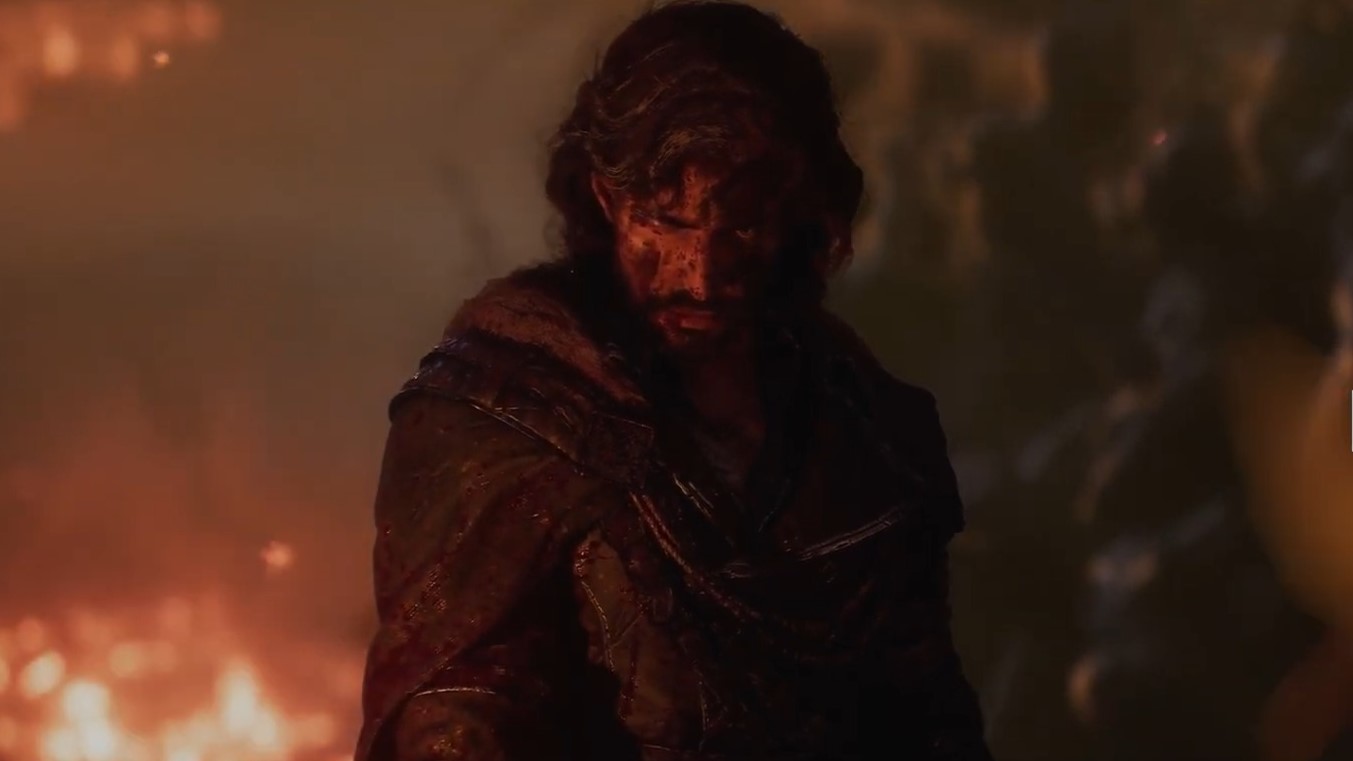Hardspace: Shipbreaker early access preview — The space simulator of your dystopian dreams
It may not be subtle, but it works.
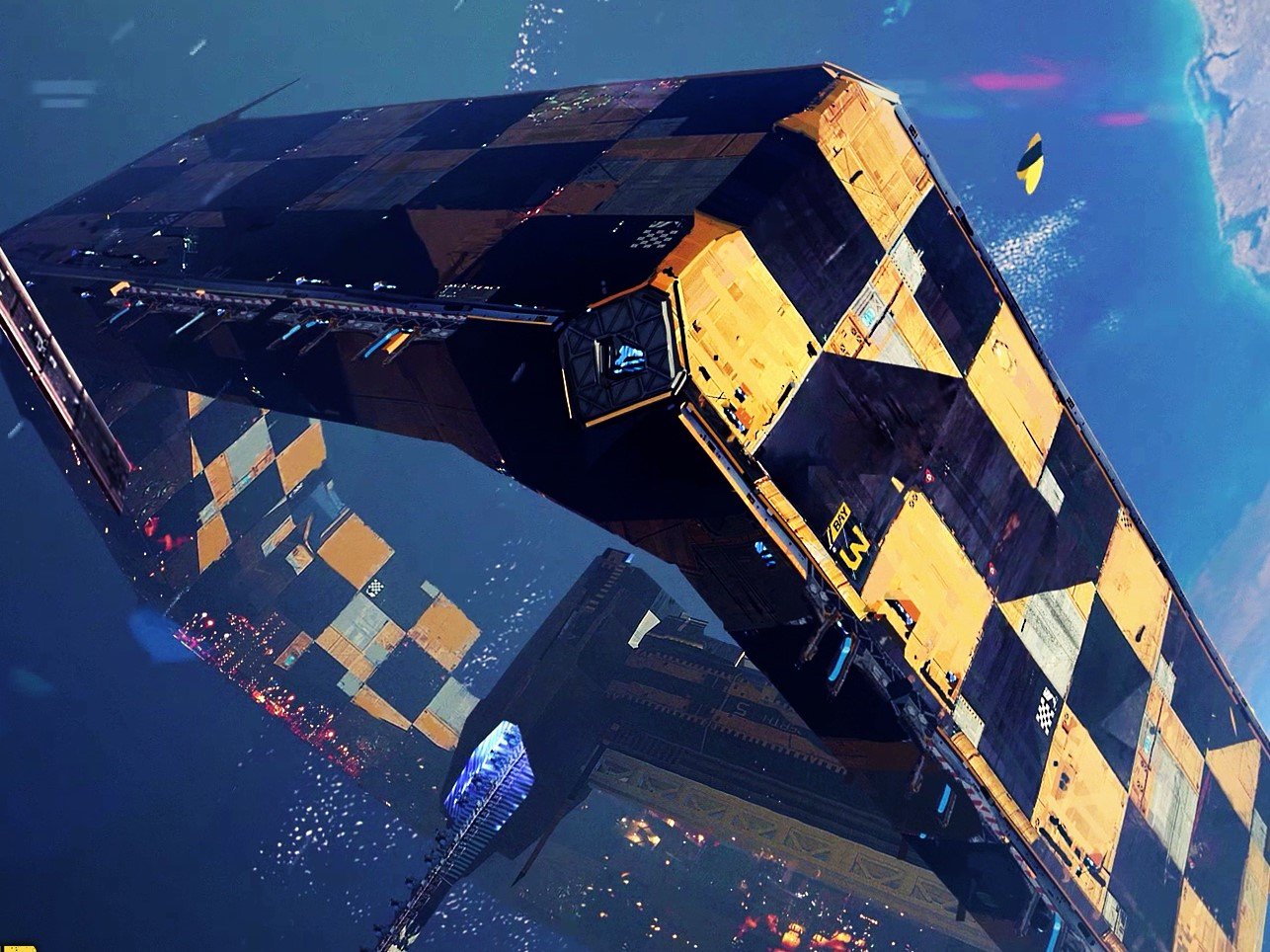
Hardspace: Shipbreaker, which is currently in Early Access, isn't exactly subtle. If we're discussing what kind of game it is, it's a space work simulation first, and a huge critic of capitalism second. If anything, it's more the latter than it is the former.
The game begins with you signing a bunch of contracts, including one that gives Lynx Corp. the right to clone you if you die on the job. Then you're reminded that you've chosen your new career as a shipbreaker, taking apart ships in the vacuum of space to preserve every piece for recycling, to pay off a gigantic billion-dollar debt. After each shift, you're presented with a roster of all the money you made, and then immediately before the next one, your daily fees are taken out. The amount you owe sits in the bottom right corner in the menu, and despite numerous shifts, it never seems to go down.
Yet, you hit the "Start Shift" button anyway. Even though the job is purposely fruitless and exploitative, there's a lot to look forward to each shift. You get to float out in space, for one. Once you get the hang of the work, you find yourself settling into a groove. Burn up the metal here, enter the airlock here, start working on the walls before you go for the reactor. Every shift is a puzzle; how do you get to the valuable parts of the ship without killing yourself? How do you process as much of the ship as possible for maximum profit? How far can you go each shift without refilling your oxygen or fixing your suit?
Hardspace: Shipbreaker is a juggling act. Not only are you juggling multiple decisions at a time, but you're weighing your emotions. In an obviously capitalist dystopia, is it worth it to put in the work?
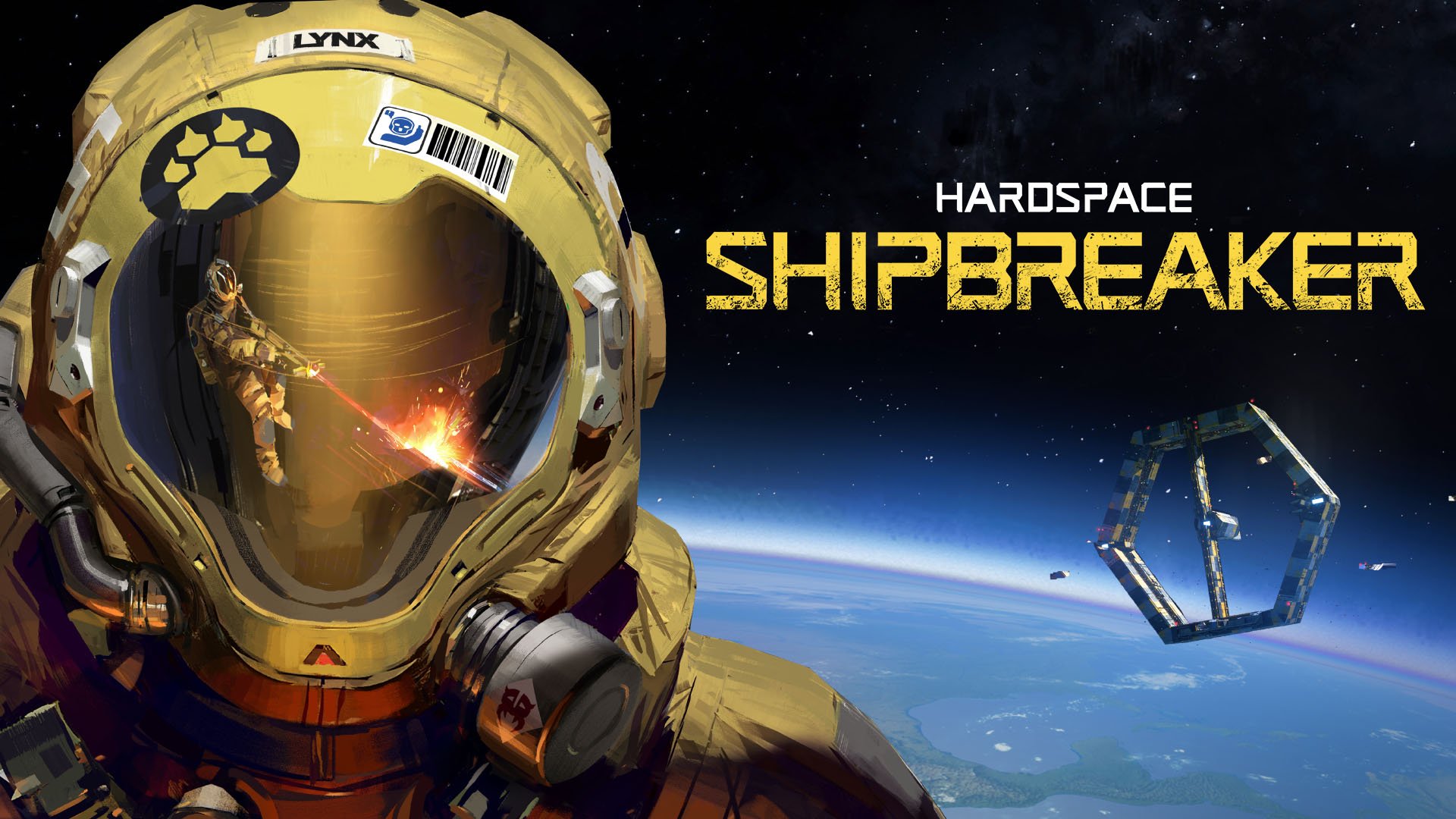
Fun in a capitalist dystopia
Hardspace: Shipbreaker is an industrial space sim that allows you to get into the groover of a workday out in zero gravity. Break apart ships and earn your keep day in and day out.
Hardspace: Shipbreaker's strength? Building the mood.
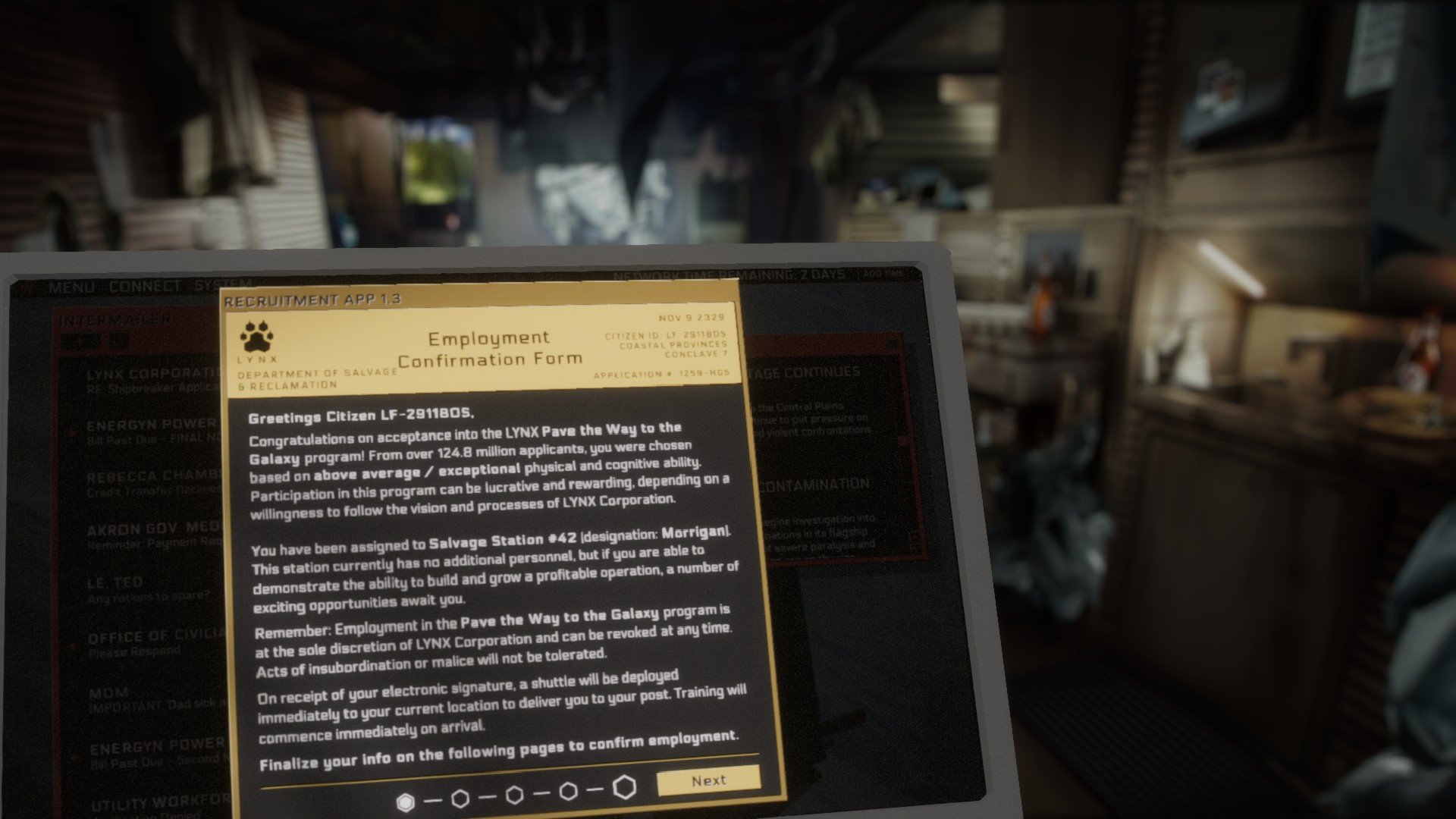
Hardspace: Shipbreaker comes from Blackbird Interactive, the studio behind Homeworld: Deserts of Kharak and Minecraft Earth. Homeworld, if you haven't played it, is a real-time strategy game. I remember playing Deserts of Kharak a few years ago, and while the gameplay didn't wow me, I was struck by how well Blackbird was able to achieve a sense of space. While most of the Homeworld franchise puts the player in outer space, Deserts of Kharak is a prequel and takes place on an Earth at the end of its life. The desert environments felt endless, and the work felt increasingly difficult and fruitless. It was a solid combination of gameplay and setting to create a specific vibe that complimented the narrative.
Hardspace is also a game that sets the mood. The bay where you do most of your work is out in the vacuum of space, and you never see another person. There's a voice in your ear named Weaver, a former shipbreaker who guides you through the game, but for the most part, you're isolated. The only other form of human contact you get is through audio logs and data you find in the ships you're breaking apart. Here you get hints into what happened to the last crews, and per the themes of the game, it usually involves a person getting swindled by the company or not being able to hit their quotas. Sometimes you'll pick up a piece of poetry or a description of the daily grind.
Unfortunately, right now, only some of the audio logs are voiced by real people, while others are read with an electronic voice. It's a testament to the writing in those logs, though, that the robot voice doesn't take away too much from their intended effects.
Get the Windows Central Newsletter
All the latest news, reviews, and guides for Windows and Xbox diehards.
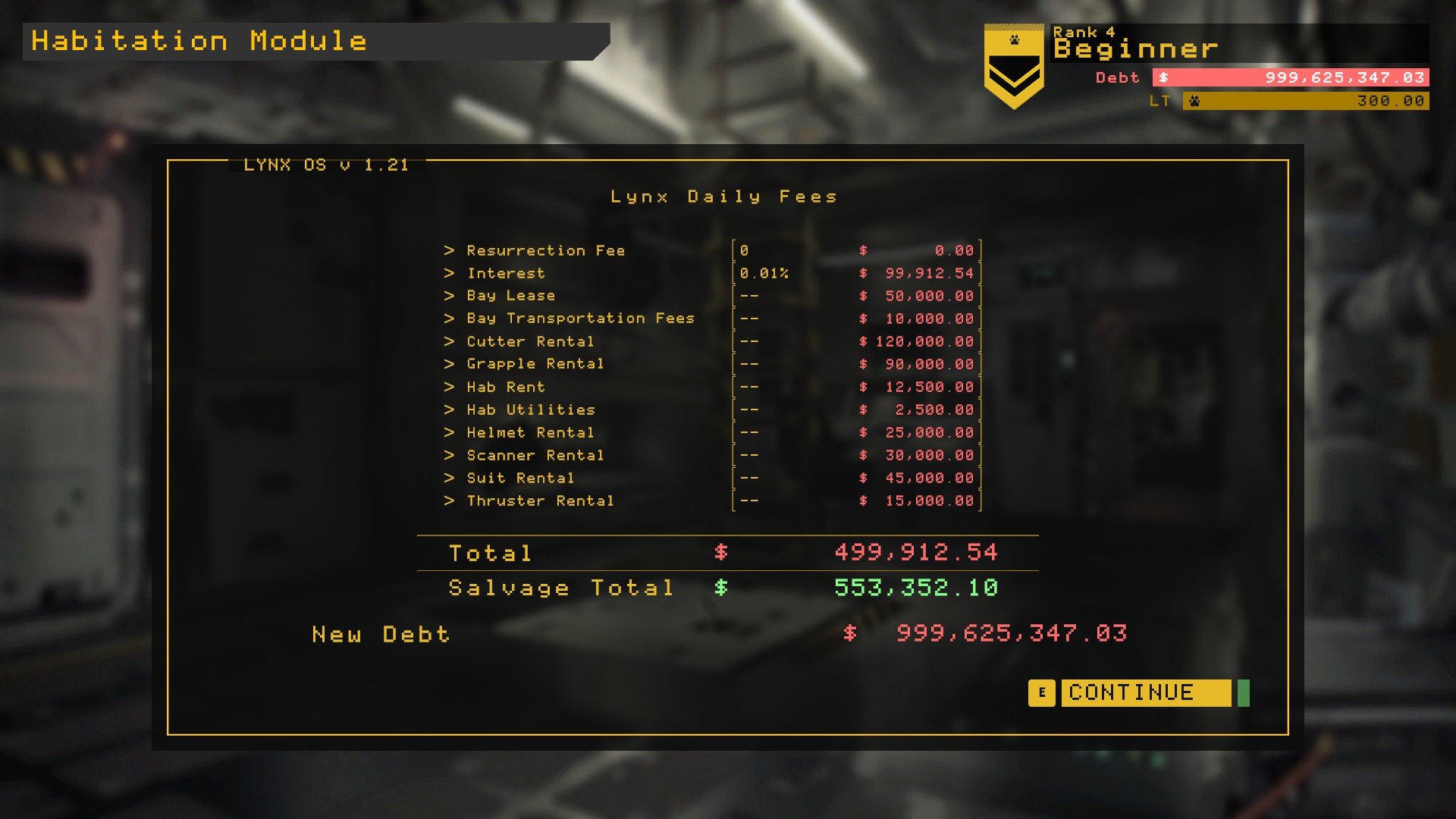
As you play, you're accompanied by a mellow bluegrass soundtrack, which seems out of place in the futuristic setting at first, but quickly becomes just another regular element in your life. It reminds the player of a specific area of Earth — the America that is filled with the poverty-stricken and the downtrodden. It conjures up images of coal miners or farmers, hoping that you make the connections yourself between what you're doing out in space and how familiar the whole scenario seems despite being sci-fi.
You could play the game on mute if you wanted. I've heard people describe Hardspace as a "podcast game," something you can play as you listen to podcasts or watch TV. It's meditative in its monotony — the same way that a lot of labor, factory, or industrial jobs are.
However, unlike real-life industry, there's no real risk to the player. If you die, you get cloned, and you can repeat the cycle over again. You know exactly who you are in Hardspace: you're a lowly worker with little power over your situation except to do the job well. You owe the company close to one billion credits, and while you may make 500,000 credits in a shift, most of it will go towards your daily fees and rent, so you're not making much of anything. There is an end in sight, but it's going to take you a very long time to get there.
What is the gameplay like?
Each shift begins with you choosing the ship you want to work on, looking over the work order, and then floating into zero gravity. The controls, as you can guess, aren't straightforward. You can move in three dimensions and often have to reorient yourself to be facing the proper direction.
Starting a shift is then like looking at a puzzle from the outside.
You're given a couple of tools to get the job done. The most important is your grapple, which lets you grab objects and move them to the correct areas to be either repurposed or broken down. This makes up the majority of the gameplay, but you're also given a scanner to help you see what you need to break down, a cutter to help, you know, cut, along with thrusters, a helmet, suit, and habitation facility where you can stock up on supplies and rest at the end of the shift.
The most important aspect of the game is utilizing the grapple, the scanner, and the cutter to not only break apart the ships but also to find the most valuable pieces. You're given a work order for each ship that tells you what parts to prioritize. For example, most ships early on will have a reactor and a power cell that you can repurpose. Then, you can break down the rest of the vessel for metal, nanocarbon, and other parts.
You also have to do all of this safely. You need to, first of all, depressurize the ship properly before you start tearing it apart. Forgetting one step in this process can result in an explosion that can kill you. You also have to be careful moving the reactor and power cell since both can also cause massive damage if not handled correctly. Usually, this is a matter of creating a safe pathway for you to drag the parts, and therein lies one of the riddles of each level. If you don't remove the proper pieces or follow the steps, you could lose your life or worse, profit.
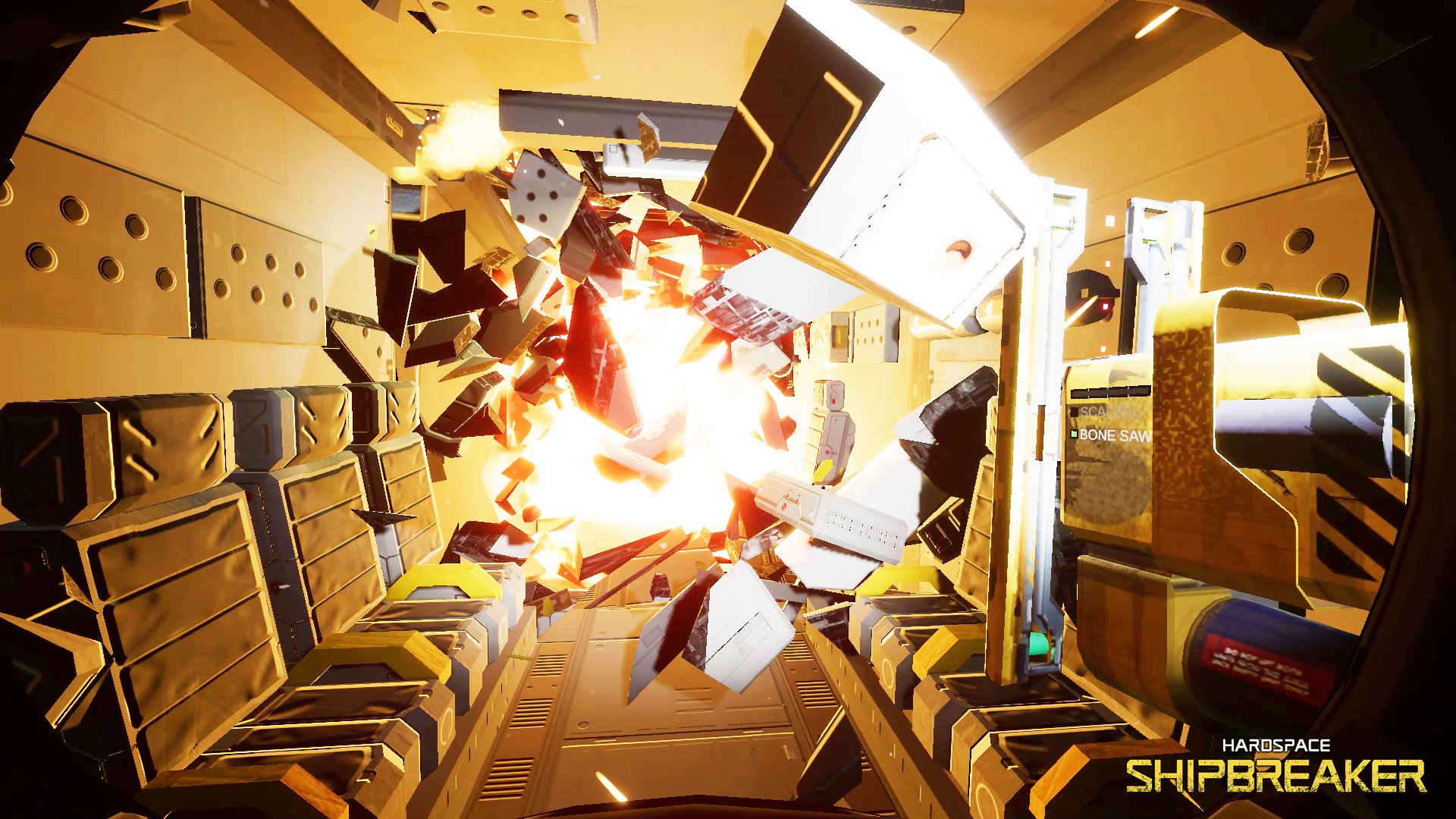
To find out how to break apart the ship is another one of the game's challenges. You can use the scanner to find all the connecting points and melt them down with your cutter, but it won't show you everything. Sometimes you need to find a way behind a wall to find the proper point or search the ship for the power cell, which doesn't show up on your scanner unless you upgrade it. You also have to make sure you break down everything to its smallest form; otherwise, you run the risk of destroying a valuable piece of the ship.
It's all standard at first, but as you complete more work orders, you gain access to higher ship grades, which are tougher ships. They have issues like dead airlocks or harder-to-access engines and fuel lines. Considering you only have a day or two to complete what's on the work order (you can continue to break down ships after the time limit has passed, but you only get more money, not the opportunity to upgrade), you have to use your time wisely. Rushing through a ship and indiscriminately cutting pieces can set you back.
Starting a shift is then like looking at a puzzle from the outside, moving it around in your hands to find the one opening that'll lead you forward. It's challenging but also rewarding once you figure out the proper way to remove a reactor. You get all the money but also the accomplishment of a well-thought-out strategy.
What's to come
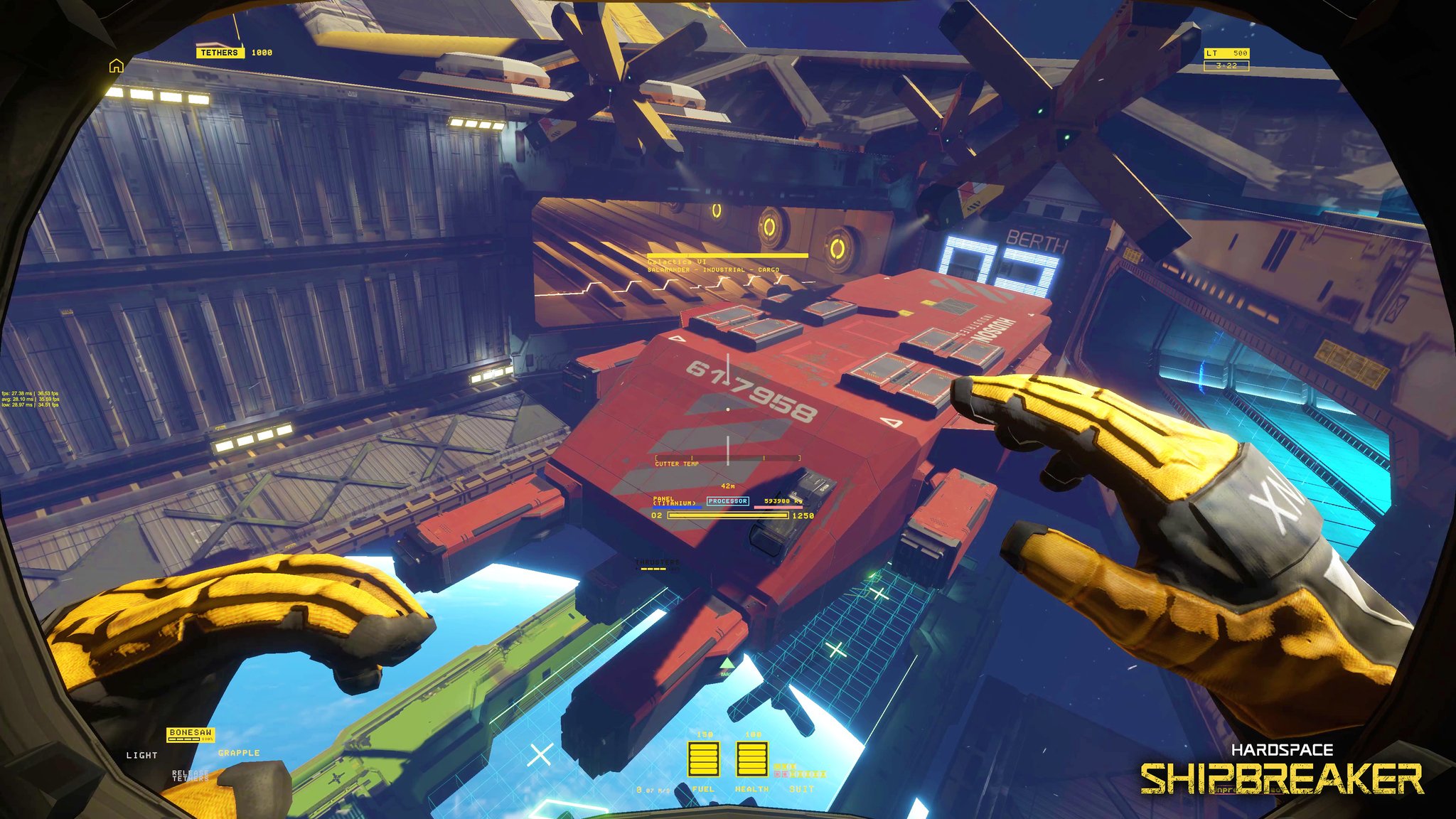
Since the game is in Early Access, there are a lot of bugs. This is standard, and the developers are working over in the Steam forums to catalog all the issues. While I was playing the game for review, I had problems with the game crashing and breaking Steam, but after a recent update, those problems were rectified.
Hardspace has a single-player campaign, which is currently around 15 hours long. Developers are expecting, when it's complete, to offer up over 40 hours of content. Beyond the story, there's also Free Play, which allows you to just play around with a ship without worrying about your health, supplies, or a time limit. There is also a Challenge mode that's not available yet, and a leaderboard, which just went online in the most recent update.
There's a lot already here and plenty more to look forward to. Blackbird devs also announced that they plan on allowing users to generate content, more ships and tools, events, and more.
Bottom line
Hardspace: Shipbreaker is a space simulator that's sure to satisfy those looking for a meditative, monotonous (in the best way) experience. It balances the challenges offered so that you learn new techniques and face unique obstacles as you go, but once you get the hang of things, it's never too difficult. Beyond the gameplay is a world filled with characters you never get to see and faceless corporations that control your every move, but that seems par for the course in games today.
The capitalist subtext might be too heavy-handed in some parts, and you're constantly reminded that it's there, but that's part of the point. You can break apart ships all you want, but it's more meaningful when there's a purpose and a story to back it up. Plus, in a capitalist dystopia, you never get to escape the system. You have to keep working until the work is done, and it is never done.

Carli is the Gaming Editor and Copy Chief across Windows Central, Android Central, and iMore. Her last name also will remind you of a dinosaur. Follow her on Twitter or email her at carli.velocci@futurenet.com.
